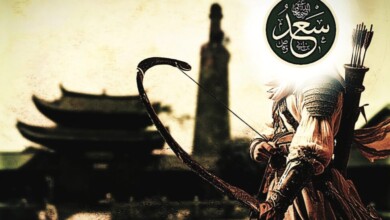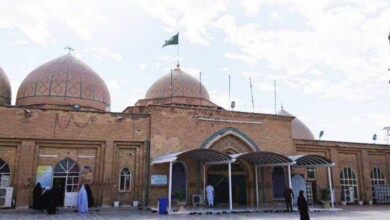Abdullah ibn Umar: The devoted and Humble Jurist
Abdullah ibn Umar (R.A.) was the son of the second Caliph Umar ibn Khattab (R.A.) and a brother-in-law and companion of the Messenger of Allah (peace be upon him). He was born in Makkah around 613-614 A.D. His mother was Zainab bint Madhun. He had accepted Islam before he was ten years old and had made the Hijrah (migration to Madinah) with his father and his sister, Hafsah (R.A.), who was later to become a wife of the Prophet (peace be upon him). Abdullah bin Umar (R.A.) is known to be a famous reporter of the sayings (Hadiths) of the holy Prophet (peace be upon him) and an early jurist of Islam.
From an early age, Abdullah ibn Umar (R.A.) demonstrated his keenness to be associated with the Prophet (peace be upon him) in all his undertakings. Abdullah ibn Umar (R.A.) was not included in the Battles of Uhud and Badr due to his young age. However, when the Battle of the Trench approached, Prophet Muhammad (peace be upon him) called Ibn Umar (R.A.) and allowed him to be a part of the Muslim army, as the Prophet (peace be upon him) decreed that he was old enough to participate in the battle. Abdullah Ibn Umar (R.A.) was fifteen years old at the time of the Battle of the Trench (Khandaq).

Abdullah would observe and scrutinise closely every saying and action of the Prophet (peace be upon him) in various situations and would practice what he observed closely and with devotion. For example, if he saw the Prophet (peace be upon him) performing Salah in a particular place, he would later pray in the same place. If he saw the Prophet (peace be upon him) making a supplication while standing, he would do the same.
Despite his close observance of the Prophet’s (peace be upon him) actions, Abdullah was extremely cautious, even afraid, of reporting the sayings of the Prophet (peace be upon him).
He would only narrate a hadith if he was certain that he remembered every word of it accurately. Likewise, he exercised great caution and reluctance in issuing legal judgments (fatwas). Because of this attitude, he was reluctant to be a Qadhi (Judge) or Caliph even though he was well qualified. The position of Qadhi was one of the most important and esteemed offices in the Muslim society and state, bringing with it honour, glory, and even riches, he declined this position when it was offered to him by the Caliph Uthman ibn Affan (R.A.). His reason for so doing was not that he underestimated the importance of the position but because of his fear of committing errors of judgement in matters about Islam. Uthman (R.A.) made him agree not to disclose his decision lest it might influence the many other companions of the Prophet who performed the duties of judges and jurists.
Abdullah ibn Umar (R.A.) was once described as the “brother of the night.” He would stay up at night performing Salah, weeping and seeking Allah’s forgiveness and reading the Quran. To his sister, Hafsah (R.A.), the Prophet (peace be upon him) once said:
“Abdullah is a righteous man if he only prays more at night” (Sahih Bukhari: 7031).
From that day, Abdullah (R.A.) did not abandon Qaiyam-ul-Layl (spending the whole night in prayer and asking forgiveness of Allah), whether at home or on journeys.
Piety, simplicity, and generosity combined in Abdullah (R.A.) to make him a person of high regard among the companions of the Prophet (peace be upon him), and those who came after them. He gave generously and did not mind parting with wealth even if he would fall in need later on. He was a successful and trustworthy trader throughout his life.
Abdullah ibn Umar (R.A.) encouraged feeding and helping the poor and needy. Often, when he ate, orphans and poor people ate with him.
For Abdullah (R.A.), wealth was a servant, not a master. It was a means towards attaining the necessities of life, not for acquiring luxuries. He was helped in this attitude by his asceticism and simple lifestyle.
With about 2,630 narrations, Abdullah ibn Umar (R.A.) was the second most prolific narrator of hadiths. It was said that he was cautious about what he narrated and that he narrated with his eyes full of tears.
Despite the great esteem and honour in which he was held by all the Muslims and notwithstanding the suggestion repeatedly made to him to stand up for the Qadhi or Caliph, he kept himself entirely distant from these offers and, throughout these years, led an unselfish and pious life.
He died in Makkah in AH 74 (692 CE) at 87.



